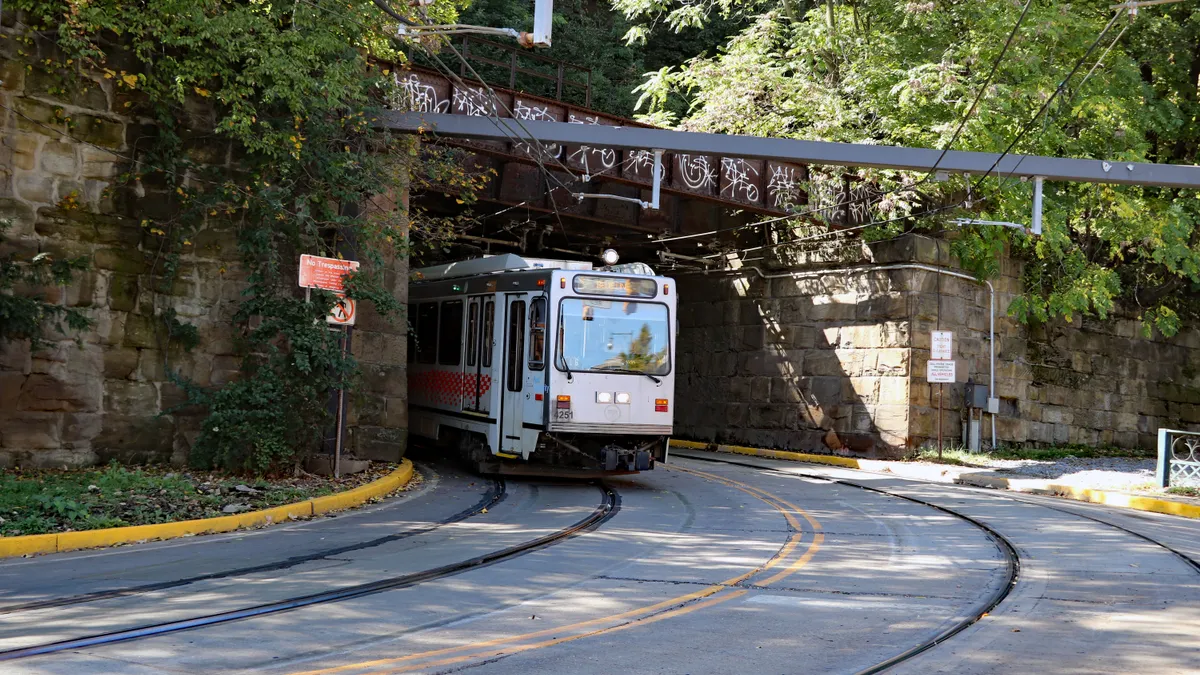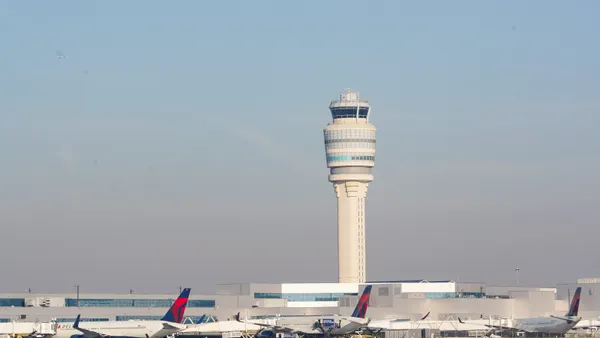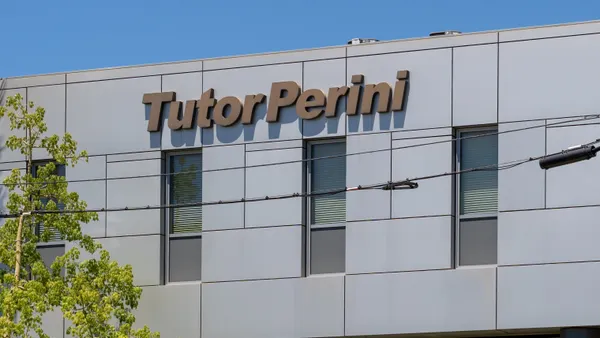Dive Brief:
- Pittsburgh's $150 million light rail improvement project will start next month with the goal of improving reliability and safety on the critical transit corridor, Pittsburgh Regional Transit announced on March 19. Work is expected to start in April and wrap in 2028.
- In an effort to streamline operations and minimize disruptions, the agency said that it is combining multiple Pittsburgh Light Rail projects it originally intended to perform separately. These include repairing concrete, replacing tracks and rehabilitating a bridge and several stations.
- Many of the projects are fully funded, according to Pittsburgh Regional Transit, and it will continue to seek funding for those that are not. The first project, between Steel Plaza and Gateway stations, will begin in downtown Pittsburgh in April and is expected to take about seven weeks. The projects will then be completed consecutively through 2028.
Dive Insight:
Pittsburgh's 26-mile light rail system, commonly known as “The T,” runs from the North Shore, through downtown and into the neighborhoods of the South Hills. The rehabilitation effort includes:
- Expanding an ongoing effort to repair the concrete rail foundations in the downtown subway tunnels.
- Replacing more than 10,000 feet of track and four grade crossings in Castle Shannon, Mt. Lebanon, Dormont, Beechview and inside the Mt. Lebanon and Mt. Washington tunnels.
- Reconstructing Belasco Station.
- Upgrading Station Square and Dormont Junction light rail stations.
- Rehabilitating the Panhandle Bridge, the 1.2-mile span that takes light rail cars over the Monongahela River near Station Square.
The agency did not specify the names of any contracting teams in its release and did not immediately respond to Construction Dive’s queries on who is doing the work.
“These projects are an important investment in our region’s future,” said Pittsburgh Regional Transit CEO Katharine Kelleman in the release. “By fortifying our light rail system, we’re building a stronger, safer, and more reliable foundation for years to come.”
Full project timelines and service information, including detours, will be announced as additional project milestones approach, according to Pittsburgh Regional Transit.















